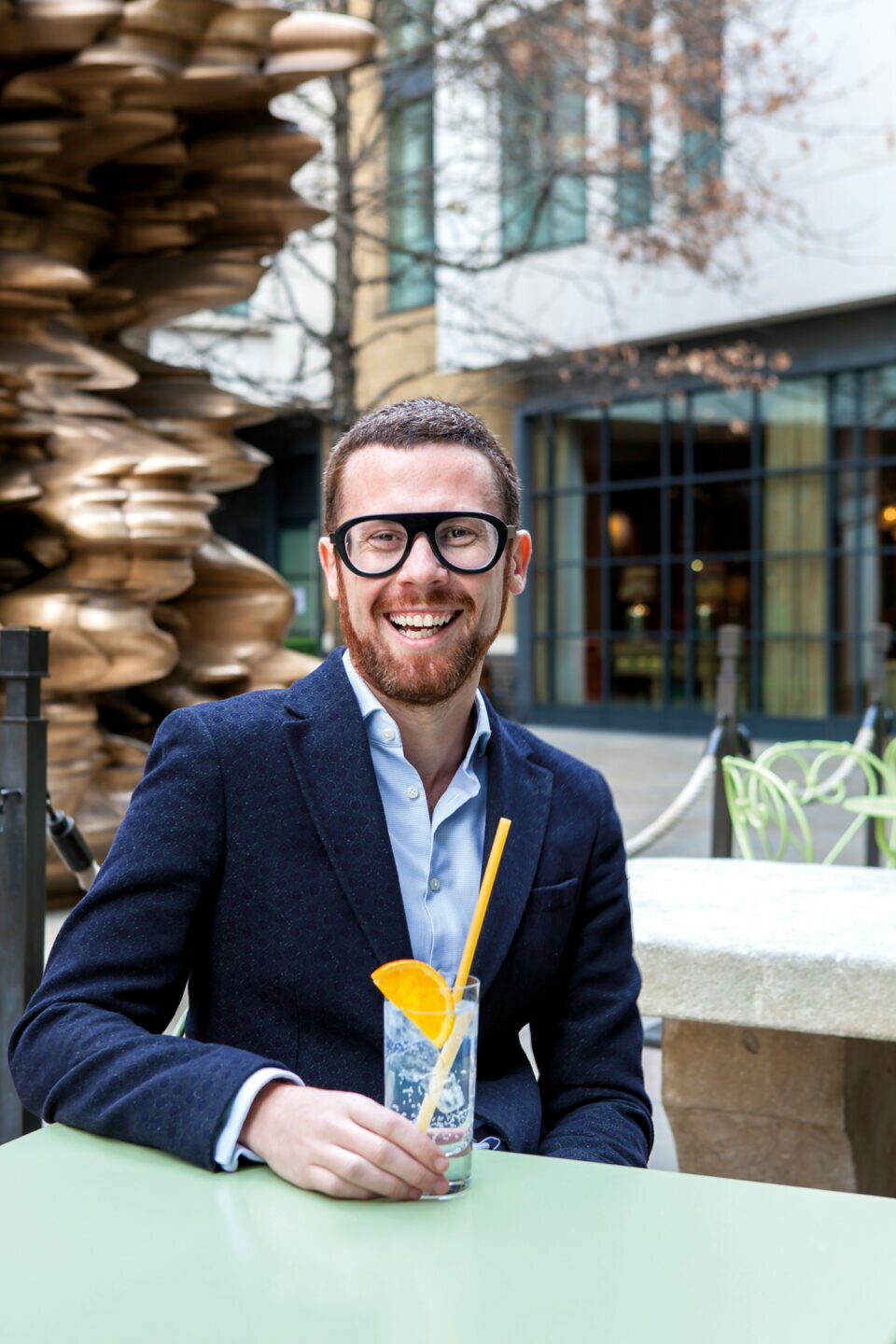Tastes change. In this hyper-sustainable, eco-conscious, 100 per cent degradable, single-use, zero-waste age, menus are changing. And it won’t be long before we are seated at our ethically- manufactured, ultra-ergonomic dining room tables as we drink our protein shakes through edible pasta straws and dig into meatless burgers with the latest in compostable cutlery.
UK-based Stroodles makes bowls and plates out of wheat bran, and cups out of wafer. You can get 10 edible plates from £6.99 ($13).
Says founder Maxim Gelmann: “Stroodles is more than a company. We are a movement dedicated to making real change by impacting the planet in positive, eco-kind ways.”
Its new edible, vegan spoons are made from biscuit and have an hour’s use time with cold dishes and 30 minutes with hot. Dessert spoons are available in oat and gluten-free chocolate flavours. Larger spoons come in classic, cocoa, black pepper and masala.
The 11.5cm-long coffee stirrers are also made from biscuit.
Who made this?
Born in Voronezh, Russia, Gelmann’s family moved to Dusseldorf when he was six. An alumnus of Manchester University, the 36-year-old has a strategy consulting background and has worked across various industries. “I’ve worked for companies such as Volkswagen, Mastercard and others. My projects ranged from restructuring an agriculture business to restructuring a retail chain of orthopaedic supply stores as well as tech start-ups.”
“But I got tired of the corporate world, and the final purpose and objective of each company, and the lack of a bigger meaning and picture. Clichéd as it may sound, I wanted to make an impact. I was inspired by my wife who worked on not-for-profit projects like Techfugees, Reprieve and All For Good.”
When the Soho-based entrepreneur came across pasta tubes being used for fun by Italians, it all started to click.
“It was like in one of those sci-fi movies, where puzzle pieces and flashbacks started coming together and it all started making sense. Pasta drinking straws was a good way to get more people into sustainability, but in a fun and uncompromising way.”
The European Union’s ban on single use plastics in member states came into effect in July 2021. “Our mission is to offer uncompromising solutions to the everyday consumer and business. We’re a part of a larger global effort to change the way we consume and use products, one Stroodle straw, cup, plate and bowl at a time.”
Making a global footprint
Stroodles is an international enterprise. Its pasta straws are made in Italy, the spoons in Germany, the plates in Poland and the cups come from Bulgaria.
“The biggest challenge was finding a factory to produce and agree on minimum order quantities, and then juggling all the business functions from sales to marketing to accounting at the same time, in a sole founder journey. There have been many laughs. With people not believing me when I say you can drink milk through spaghetti. And I had to stop people eating them before drinking!
“We had a stand at a popup at Christmas once and a marching band came by and suddenly we had lots of kids randomly asking for some straws and suddenly they started playing their drums with them. That’s a great memory. One day, maybe we’ll be sitting and stroodling our Christmas meal!”
Gelmann says it’s all about educating consumers to eat for their own health as well as that of the planet.
“At the moment, most people are aware of the plastic problem, but unfortunately, it is usually painted in a doom-and-gloom scenario in the media, whereafter people are usually left overwhelmed and feeling the problem is too big for them to do something about. Additionally, sustainability is generally portrayed as something difficult and burdensome.”
“Stroodles demonstrates how sustainability can be actionable and, above all, fun. We strongly believe that we need millions of people doing sustainability imperfectly versus a few thousand doing it perfectly. Change made easy is what we are all about.”
The way Gelmann sees it, Stroodles offers an actionable solution to a major global problem. “We want to be a big talking point, and deliver memorable and ‘Instagramable’ experiences,” he says. “We’re setting out to spread awareness, leave long-lasting impact and trigger long-term behaviour change.”
“We are about guaranteeing that every meal is not only a thoroughly Instagrammable, guilt-free experience, but also a world-saving event,” he smiles.
Changing menus in a changing world
We all know how a satisfying meal leaves us feeling; it’s one that after we’re done eating, we feel, to some extent, that we have helped protect, restore and promote sustainable use of terrestrial ecosystems, sustainably managed forests, combat desertification, even halt and reverse land degradation and halt biodiversity loss.
That might sound like a tall order and tough work, but it might not be, with menus slowly changing along with our eating habits.
To whet our paleo and ketogenic tastebuds, a modern meal might begin with cereal amuse-bouches with good-for-the-gut kombucha. The first course could be a sachet of mineral-fortified miso or root vegetable broth over zero-calorie, celeriac-friendly tapioca starch and white rice flour noodles.
Any modern meatless meat main course will be complemented by increased immunity and nourished hair, skin and nails, especially if it’s a Futuro Burger 2030. A new plant-based burger, this was launched by Brazilian start-up Future Farm, Latin America’s first plant-based food company whose meatless products are available in 18 countries worldwide. Since its launch in 2020, Future Burgers has accounted for 23 per cent of burger sales in Brazil.
To go with your meatless main course, how about an ethically-sound edamame side salad, followed perhaps by a dessert of non-dairy, soya-based hazelnut chocolate ice cream or fresh fruit. And there is no washing up to worry about, because you would have consumed most of your meal — cutlery and all.





